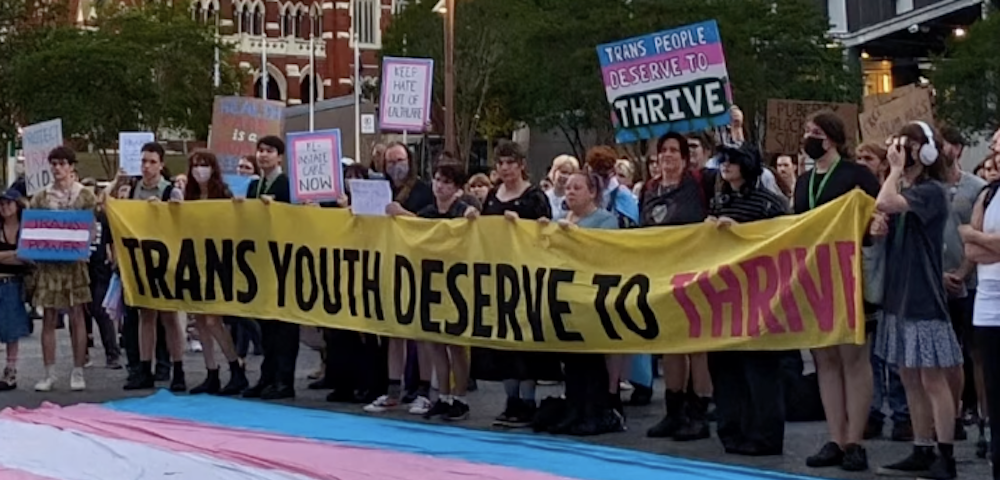
Danby in hot water over How To Vote cards

 Labor MP Michael Danby is defending his electoral tactics after the member for Melbourne Ports was outed this week printing two different How To Vote cards, with one of the cards placing the Sex Party last in his preferences in a move seemingly designed to appeal to conservative Jewish voters.
Labor MP Michael Danby is defending his electoral tactics after the member for Melbourne Ports was outed this week printing two different How To Vote cards, with one of the cards placing the Sex Party last in his preferences in a move seemingly designed to appeal to conservative Jewish voters.
Earlier this week, the Jewish news service Galus Australis revealed Jewish constituents in the suburb of Caulfield had been posted a How to Vote card that placed the Sex Party last with Family First second, despite other How to Vote cards distributed by Danby in public and other parts of the electorate having the Sex Party in second place. Danby has previously claimed he would be guided by his convictions and principles in selecting his preferences.
Danby himself did not respond to the Star Observer by time of publication despite his staff promising he would do so by Friday – however, a media adviser claimed his preferences were “completely irrelevant”.
“I can assure you that no harm will come to the LGBTI community because of his preferences,” Danby’s media adviser told the Star Observer. “There will be no tangible impact.
“If you’re from one of the major parties preferences are irrelevant. It’s not as though as the outcome of who wins Melbourne Ports depends on Danby’s preferences.”
Danby’s media adviser said she could not divulge whether the Labor MP, who has held the seat since 1998, had abided by his promise to be guided by his principles or whether he believed the Jewish community was more likely to support anti-gay, Christian parties.
“I can’t give you an answer to that,” she said.
A spokesperson for the Australian Electoral Commission (AEC) told the Star Observer that Danby had not broken any election rules.
“The requirements related to how-to-vote cards can be found at section 328 and 328B of the Commonwealth Electoral Act 1918,” the AEC official said. “Neither section provides a limit on the number of different how-to-vote cards a candidate can prepare.”
It is the latest controversy to hit candidates contesting the inner-city electorate with the openly-gay Liberal candidate, Kevin Ekendahl, forced to defend his choice of preferences while the Sex Party’s candidate, Melissa Star, a transwoman, has come under fire from sections of the transgender community after making comments on the suicide of a young Perth-based marriage equality activist.
Late last week, Ekendahl came under criticism for his decision to preference Family First on second spot on his How to Vote cards.
“It means absolutely nothing. State-wide what happens is our how to vote cards are all designed and organised by our head office, by our director — he’s the one who decides where our preferences go, and essentially, my preferences won’t go anywhere,” Ekendahl told the Star Observer on July 31.
“Because I’m going to be one of the two candidates with the most primary votes, our preferences don’t get counted. So it actually means nothing at all.”
Speaking to the Star Observer this week, Star said that as a Jewish lesbian with a religious background herself she thought Danby was underestimating the Orthodox community.
“I’m speaking at my synagogue tonight and believe many of us will vote Sex Party to keep kids safe at school, keep drugs off our streets, and support an economically strong, socially progressive, modern Australia,” Star said.
“I believe most Jewish mothers want their children to get married, straight or gay.”
On Monday, Star was made to release an apology on her Facebook campaign page after she was accused of using the suicide of a young transgender woman in Perth for political gain.
“Last night I wrote a post in response to the death,” Star wrote. “It was insensitive towards a community who is still grieving and it was wrong of me to make any assumptions of you without communicating with you first.”
The Labor Party has had a firm grip on Melbourne Ports since 1906. However, in recent years it has become a seat where Labor has often trailed on first preference votes before winning on the back of preferences from the likes of the Greens and the Australian Democrats.









